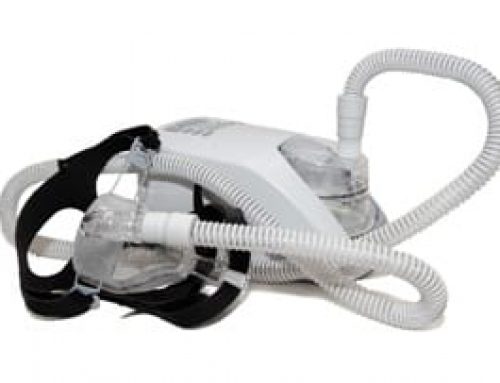Sleep apnea is a common disorder among older adults; it affects up to 53% of men and 26% of women. Sadly, many people go undiagnosed which increased the risk of many chronic diseases and ailments. According to a study done at New York University, patients with untreated sleep apnea were diagnosed with cognitive impairment nearly ten years early than participants without sleep apnea. Research backs the idea that sleep apnea leads to a much faster decline in cognitive function. The good news is that these studies have also found that treating sleep apnea seems to delay the onset of cognitive impairment by approximately ten years. This essentially means that sufferers who get treated for sleep apnea declined cognitively at the same rate as people who do not have sleep apnea at all.
How Does Sleep Apnea Negatively Affect Cognitive Function?
Researchers aren’t sure exactly how sleep apnea damages the brain, other than the fact that sleep apnea causes repetitive dips in blood  oxygen levels. These dips could affect many organs throughout the body. Blood oxygen levels drop in people with sleep apnea because their throats close up which causes brief pauses in breathing. One of the most common causes of sleep apnea is obesity because the extra weight around the neck pushes down on the throat. When you are asleep, your throat muscles are relaxed, and this excess weight can cause the throat to close briefly until you wake yourself up gasping for air. These temporary gaps in breathing can happen upwards of 400 times a night, without you being aware because you don’t often wake up enough to be conscious. For this reason, you may wake up in the morning not feeling refreshed and still tired.
oxygen levels. These dips could affect many organs throughout the body. Blood oxygen levels drop in people with sleep apnea because their throats close up which causes brief pauses in breathing. One of the most common causes of sleep apnea is obesity because the extra weight around the neck pushes down on the throat. When you are asleep, your throat muscles are relaxed, and this excess weight can cause the throat to close briefly until you wake yourself up gasping for air. These temporary gaps in breathing can happen upwards of 400 times a night, without you being aware because you don’t often wake up enough to be conscious. For this reason, you may wake up in the morning not feeling refreshed and still tired.
The low oxygen levels caused by sleep apnea hurt particular parts of the brain more than others. The neurons in the hippocampus are particularly sensitive to oxygen dips, and that is where Alzheimer’s is though to develop. Sleep apnea may cause added stress on these neurons causing cognitive impairment and Alzheimer’s to start sooner.
How To Prevent Early Onset Cognitive Decline and Alzheimer’s
Alzheimer’s is a horrible disease that is untreatable, but you can reduce the onset of it by ten years, allowing you to live a much longer, higher quality of life. Sleep apnea should be part of regular health screening, especially if you have a family history of the condition.
If you wake up tired, never feel like you get enough sleep, or your partner complains of loud snoring you should talk to your doctor. Getting tested for sleep apnea is easy, you can even do an at-home sleep study where you don’t even have to leave your house.
Treatment for sleep apnea usually includes a machine that helps you breathe better during sleep called a CPAP machine. CPAP stands for Continuous Positive Airway Pressure. This machine blows a steady stream of air into your throat to prevent it from collapsing while you sleep. This machine will help your partner sleep better as well because you won’t be snoring so loud and gasping for breath.
Use A CPAP Cleaning Device To Keep Your CPAP Machine Safe And Effective
Your CPAP machine needs to be cleaned daily to keep it in good working order and to prevent you from getting sick. A dirty CPAP machine can harbor dangerous germs and bacteria, and even mold.
Using soap and water is the traditional way of CPAP cleaning, but VirtuOx has come up with a much simple way. VirtuCLEAN is their CPAP cleaning device that uses ozone to clean and sanitize your CPAP equipment. You simply plug the device into your CPAP machine and turn it on. It only takes 30 minutes from start to finish, and because it uses no liquid, your sleep apnea equipment is left completely dry and ready to use.
Don’t be afraid of a sleep apnea diagnosis. Treatment of this condition is extremely effective. There are several different CPAP mask types now that make the machine much more comfortable and easier to use than the older, bulkier equipment. Leaving a sleep disorder untreated has dangerous consequences that hinder your quality of life.




 Shop
Shop



